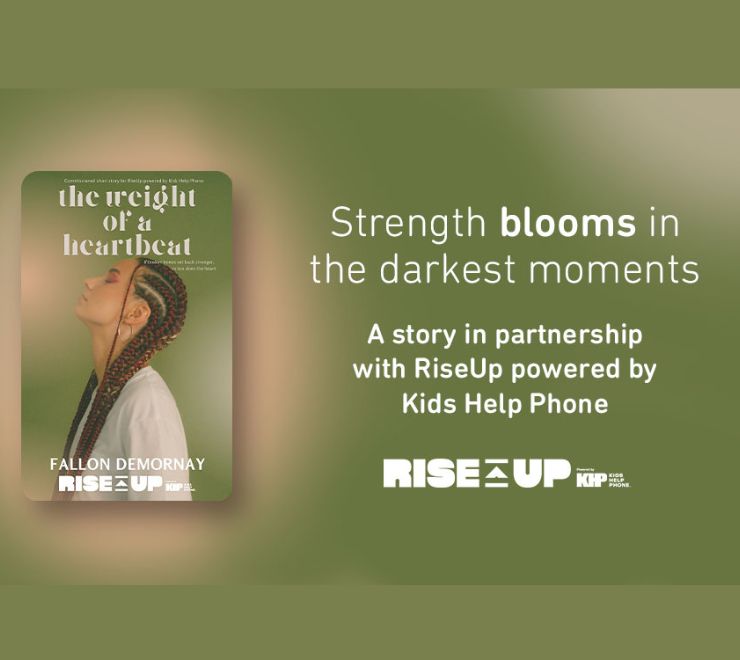Emotions provide important information about how we’re doing at any given moment. They tell us when we’re scared, angry, sad and when we’re happy, excited or confident. As kids grow, they learn how to use emotions as tools to express themselves and communicate with those around them. As an adult, you can facilitate the development of emotional self-regulation by providing comfort in times of distress, modelling calmness and empathy and praising the behaviours you want to see. This will help kids learn skills to handle emotional challenges on their own.
What is emotional self-regulation?
Here are a few important things to know about emotional self-regulation:
- Self-regulation is defined as the ability to control and manage one’s emotions and behaviour to meet the needs of the situation.
- When kids experience powerful, uncontrollable feelings such as anger, anxiety or sadness, you may notice the following behaviours: tantrums, outbursts, whining, defiance, fighting, etc.
- Respond to those behaviours in a soothing and non-judgmental way. This helps kids calm down and gives them the opportunity to choose other ways of responding to the situation.
How do I start a conversation?
Here are some conversation starters you can use when talking to the young person in your life about managing their emotions:
- “Describe the feeling. Where do you feel it? In your body? Or is it more of a picture in your mind?”
- “How are you different before and after the feeling?”
- “What’s going on for you inside?”
- “What was going on before you started to feel [the emotion]?” “Where were you?” “Who else was there?”
What are some other helpful tips?
Here are some other things to keep in mind as you’re helping the young person in your life learn how to regulate their emotions:
Understanding emotions
- Describe and label emotions when you or the young person are feeling them, so they learn to connect the word with the feeling. To help develop self-regulation, encourage kids to name and talk about their feelings before they get too intense.
- Avoid promoting the idea that “happy is good.” Instead, teach young people that everyone has a range of emotions and none are inherently good or bad.
Difficult feelings
- Teach kids how to manage difficult feelings early on in life. At a young age, they’ll learn by watching you. Model how you would handle these feelings.
- For example, when you feel frustrated, nervous or angry, strategize aloud about how you’ll handle these feelings.
Validation
- Validation is a tool you can use to help kids calm down by accepting their feelings and showing you understand.
- You can do this by paying attention to them and being attuned to their body language and facial expressions. It also involves understanding their perspective in the situation and letting them know it’s OK to feel the way they feel.
Active ignoring
- Ignoring inappropriate behaviour such as whining or arguing can discourage kids from acting that way in the future.
- How to actively ignore: turn your face or body away or leave the room if a kid is engaging in minor misbehaviours. It’s important to turn your attention back to them when they do something you can praise.
Positive attention
- Attention is the most powerful tool you have when influencing the young person’s behaviour.
- Paying attention to and praising behaviours you want them to engage in will assist kids in adopting that behaviour.
Setting expectations
- To help kids with self-regulation, establish clear rules and consistent routines.
- It can be beneficial to warn kids of upcoming changes.
- For example, before stopping an activity a kid is engaged in, provide a warning such as, “In 15 minutes we’ll be [going outside, getting ready for bed, etc.].”
Provide options
- Asking young people to do things they don’t want to do may cause difficult feelings. One way to mitigate this is by providing them with two options (either “A” or “B”). This can reduce negotiating and tension.
Planning for emotional challenges
- If you know of situations that can aggravate the young person, it may be useful to talk about the upcoming event and strategize ways to overcome emotional challenges.
Problem solving
- When a kid has a tantrum or outburst, your natural instinct may be to put it behind you, but it can be useful to talk about what happened afterward.
- Talk to the kid in a non-judgmental manner and work with them to strategize things they could do differently the next time.
Five special minutes a day
- To help manage any stress kids may have, it can be effective to set aside some time in the day (even just five minutes) for you and the young person to participate in a fun, enjoyable activity of their choosing.
If the young person in your life is struggling with emotional self-regulation, they can contact Kids Help Phone 24/7 for support and other ways to cope.














